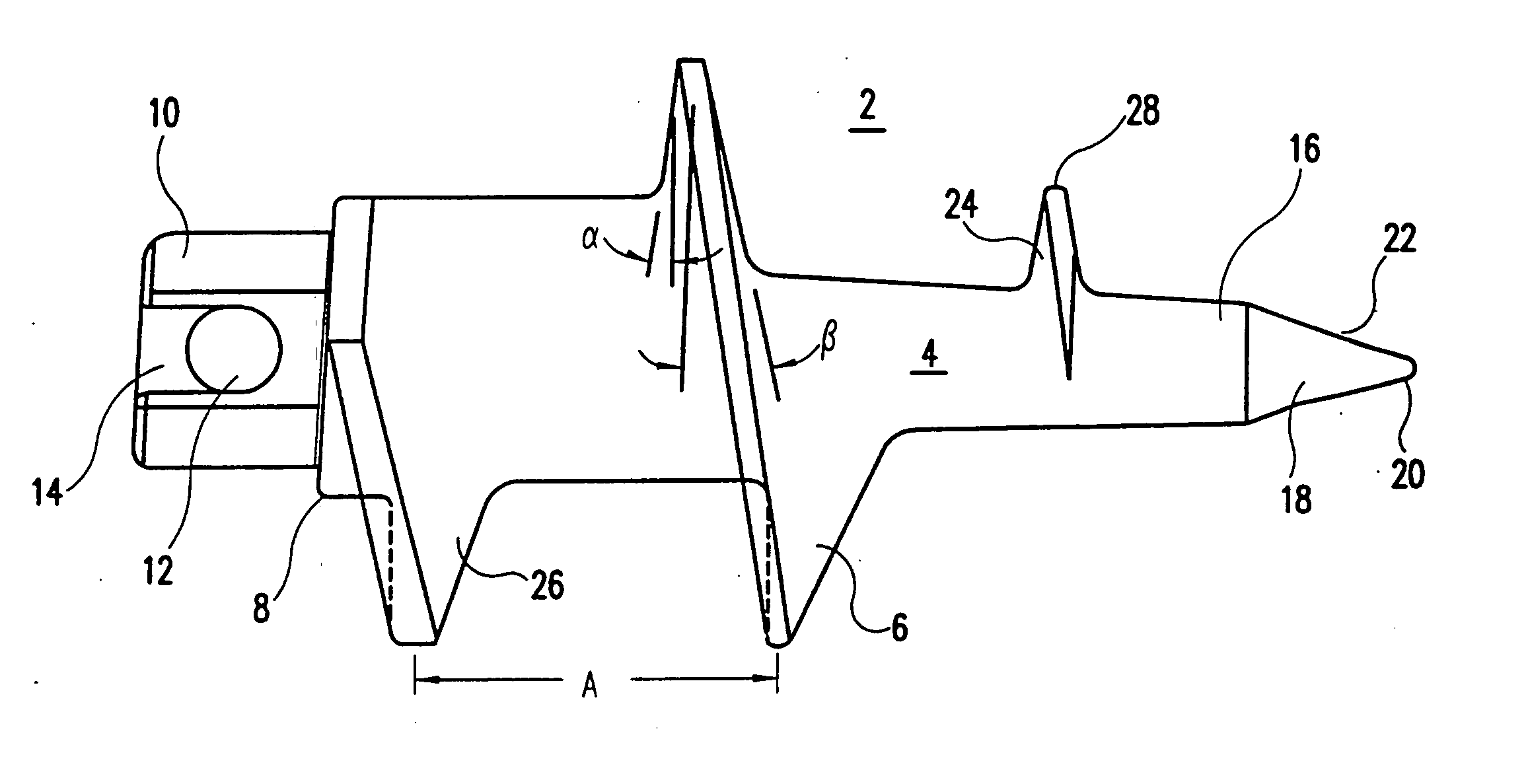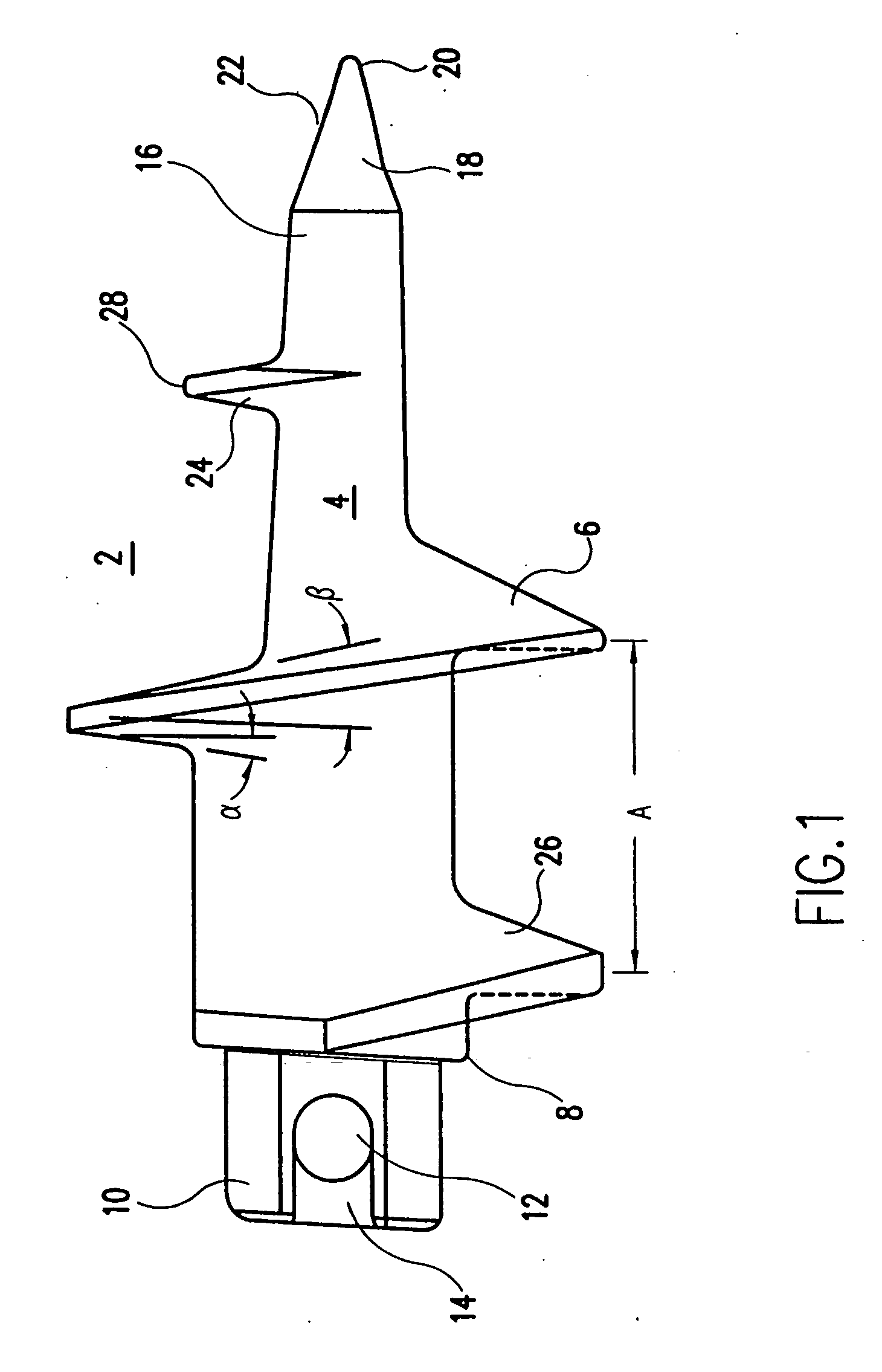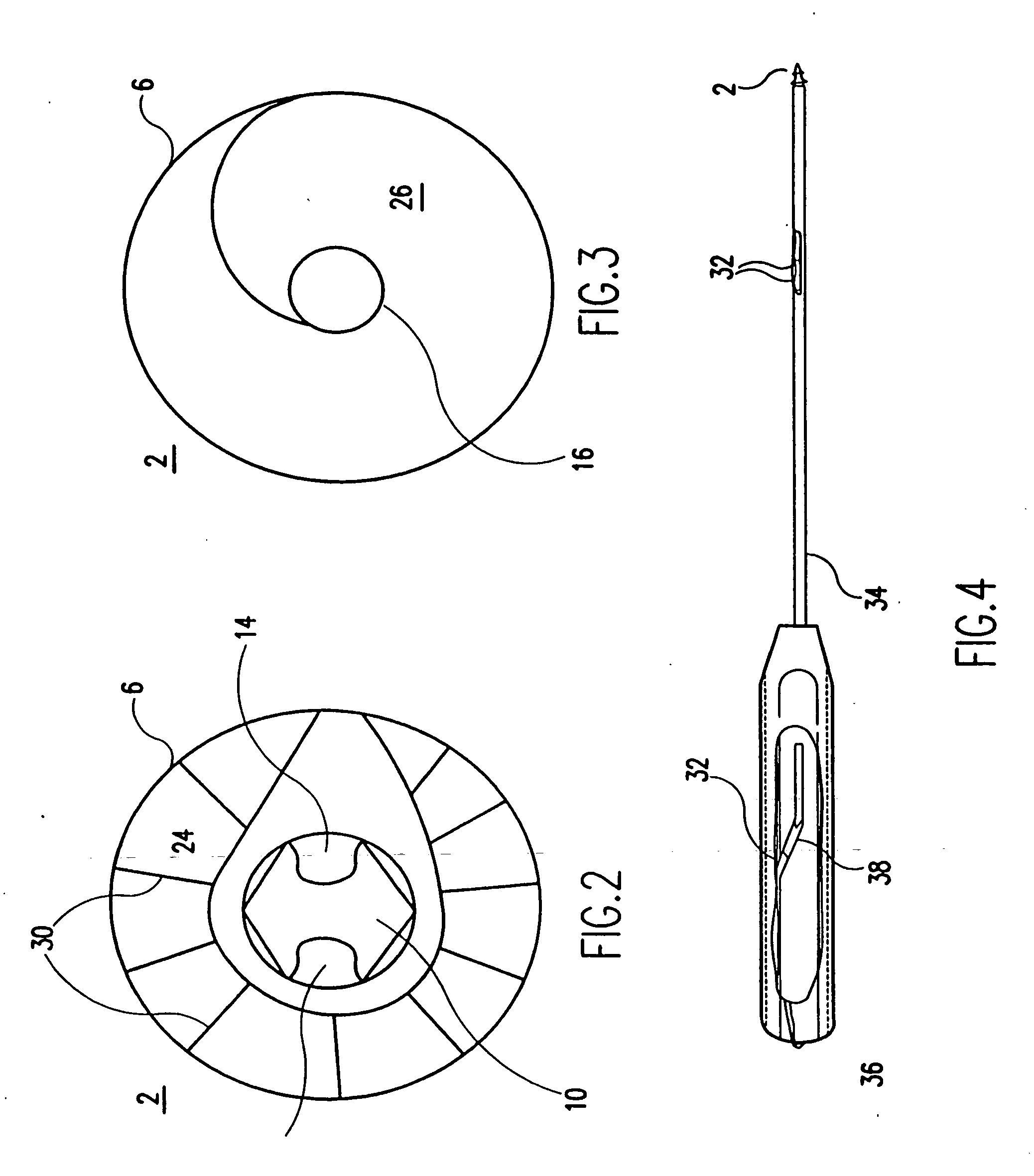Corkscrew suture anchor
a corkscrew and suture anchoring technology, applied in the field of corkscrew suture anchoring, can solve the problems of insufficient pull-out strength of the above-mentioned suture anchor, the type may present a limited range of specific fixation points, and certain known suture anchors also have a tendency to “back out”. , to achieve the effect of preventing the distal end from impinging, increasing the percentage of thread surface area, and increasing the pull-
- Summary
- Abstract
- Description
- Claims
- Application Information
AI Technical Summary
Benefits of technology
Problems solved by technology
Method used
Image
Examples
Embodiment Construction
[0027] Referring to FIG. 1, the suture anchor 2 of the present invention includes a body 4 provided in the shape of a tapered cylinder. A continuous thread 6 wraps around body 4 in a clockwise direction, as shown.
[0028] Suture anchor 2 is provided at a proximal end 8 of body 4 with hexagonal drive head 10 having a suture eye 12. The suture eye 12 preferably is in the form of an oval aperture in the drive head for holding at least one, and preferably two or more pieces of braided suture. Channels 14, also shown in FIG. 2, are formed along either side of the drive head 10 to accommodate the suture, such as when the suture anchor is held in a suture anchor driver, set forth more fully below.
[0029] A tip 18 is provided. Tip 18 terminates in a rounded point 20, which is approached by a concave, conically tapered surface 22. Conical taper 22 begins at the distal end of the screw thread, and features an angle of taper deeper than the taper of body 4.
[0030] The body preferably is formed ...
PUM
 Login to View More
Login to View More Abstract
Description
Claims
Application Information
 Login to View More
Login to View More - R&D
- Intellectual Property
- Life Sciences
- Materials
- Tech Scout
- Unparalleled Data Quality
- Higher Quality Content
- 60% Fewer Hallucinations
Browse by: Latest US Patents, China's latest patents, Technical Efficacy Thesaurus, Application Domain, Technology Topic, Popular Technical Reports.
© 2025 PatSnap. All rights reserved.Legal|Privacy policy|Modern Slavery Act Transparency Statement|Sitemap|About US| Contact US: help@patsnap.com



